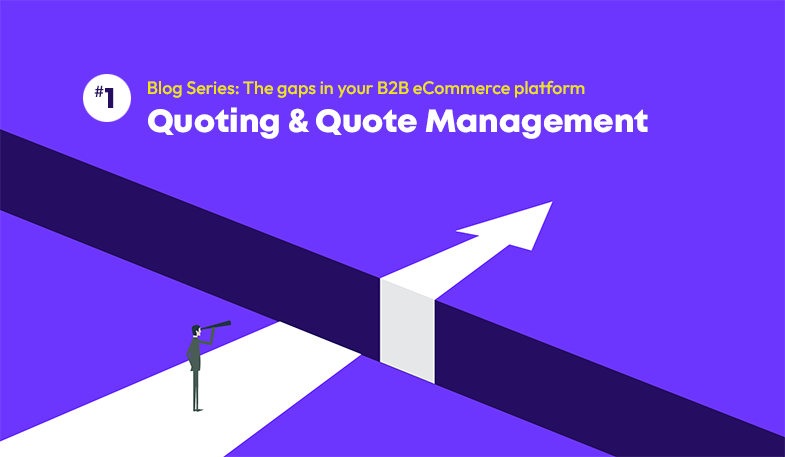Hosted vs. Non-Hosted eCommerce Solutions: Which is Better?

One of the most important decisions you’ll have to make before you get into eCommerce concerns the issue of hosting. Specifically, do you choose a non-hosted or a hosted solution? What’s the difference between them, and how do you know which one is a better fit for you and your company? Let’s take a look at your options and consider their advantages and disadvantages.
Is the non-hosted option worth it?
When we refer to a non-hosted eCommerce solution, we’re actually talking about a situation where you (the client) do all of the hosting yourself on your own server, as opposed to having a third party handle it for you on theirs. Your non-hosted (also known as “self-hosted”) eCommerce solution might be an open source one such as Magento, Slatwall, or osCommerce. Alternatively, you might choose to purchase an enterprise license for a non-open source solution like Micros, NetSuite Commerce, or even SAP. Regardless of the eCommerce solution you select, the hosting portion of it will be handled entirely within your company, by your own people.
At first glance, this option might sound pretty appealing. After all, if you’re self-hosting, you won’t have to pay another company to do it for you, right? And you’ll certainly have more control over your code and your data if you keep everything in house. But that’s only a narrow view. When you step back and look at the bigger picture, self-hosting begins to look much different and a lot more complicated.
First of all, there’s the substantial expense of setting up the infrastructure that you’ll need for self-hosting. And that’s only the beginning: You’ll also have to find, hire, and pay the internal IT staff who will manage and maintain that infrastructure. Speaking of staff, you’ll need to have a good idea of exactly how many IT people will be on your self-hosting payroll. Will you need just one person? Two? Three? Even more? Each addition increases the cost of self-hosting. Once you’ve got your infrastructure and IT needs taken care of, you’ll have to address the costs of the in-house developers who will be working with your marketing team on a day-to-day basis.
Then there are the logistical challenges to consider. When you self-host, you’re adding a substantial amount of work (and a mission-critical business function) to what’s already going on in your company. Think of everything you and your employees do on a regular basis to keep your business running, whether you provide a service, sell a subscription, or churn out tangible products. You also need to service your existing customers, prospect for new business, retain your current employees, and hire new ones as necessary. And don’t forget planning and forecasting for your company’s growth, as well as staying on top of leases and purchasing capital equipment. Do you really want to take on the project and additional burden of hosting your own eCommerce platform?
The only scenario where self-hosting really makes sense is one where you already have the infrastructure, a large in-house IT team, and developers in place. Even then, you’d better make sure that all of those people have plenty of experience with eCommerce. Having an IT team and a developer or two on staff doesn’t necessarily qualify them as eCommerce hosting experts. Is it worth staking your online store’s reputation and success on a hope that those employees will be up to the task?
If you’re concerned that self-hosting could end up being a huge headache, you do have another choice: the hosted option. As a matter of fact, there are two kinds of hosted eCommerce platforms, so let’s see what they entail.
Option 1: a turnkey hosted eCommerce solution
For some companies, a turnkey or “click and go” option is a good fit. Shopify is a great example of a popular and well-known turnkey hosted eCommerce solution. Think of it as the WordPress of eCommerce: You simply sign up, create your account, pick out your template, put up your products/services, and off you go. Shopify does all of the hosting and heavy lifting for you, which means you can sit back and concentrate on what you do best – running your company.
A turnkey hosted eCommerce platform can be a sound option if you’re a startup and you’re looking for something that provides a quick and dirty solution right out of the box. Because it’s click and go by design, this alternative doesn’t offer a whole lot in the way of customization, which means there is the added benefit of cost-containment, at least for the short term. It’s also an appropriate platform if you plan to stay on the smaller side for a while (or at least for the foreseeable future). If you think it will take five years or so for you to reach the $1 million mark in revenue, then a turnkey platform might be just the ticket for you.
But hang on a moment: What if you go with the turnkey hosted solution and then your company starts growing like gangbusters due to the runaway success of a new product that you’ve rolled out? Or what if your hosting needs suddenly get a lot more complex than what Shopify (or whatever you’re using) can handle? You’re now stuck with an eCommerce platform that can’t grow with you, which means you’ll have to migrate to something that can. Of course, a migration can’t happen overnight. It takes time and costs money – which brings us to hosted option 2.
Option 2: a robust, scalable, customizable hosted eCommerce solution
You’ve probably heard the old saying, “An ounce of prevention is worth a pound of cure.” There’s a lot of wisdom in that statement. So ask yourself the following questions:
- Would you be willing to invest a little more up front at the beginning of your eCommerce journey if you knew that such an investment would actually save you money in the long run?
- Do you have a steady stream of revenue and good projections for the next 12-24 months?
If you can answer “yes” to both, then it’s well worth choosing a hosted platform that uses enterprise software and employs dedicated teams of highly experienced eCommerce pros. Ultra Commerce, Demandware, and many of the solutions listed at the beginning of this blog post are all examples of robust hosted platforms that have scalability and customizability built right into them.
Because these eCommerce solutions grow with you and adapt to your evolving needs, they completely eliminate the hassles of migration. And that means you won’t have to deal with the associated worries of downtime or interruptions in business (not to mention their negative financial implications).
Moreover, you’ll enjoy the advantages that come with the professionals who stand behind these robust hosted platforms. The people who develop, implement, and support these solutions have decades of eCommerce experience under their belts. In fact, that’s all they do. The good ones will sit down and brainstorm with you to determine your unique functional and business requirements. And the really good ones will do much more than provide a mere service. They will guide you, advise you, help you, and act as your strategic, long-term business partner.
Can you get all of that from a box?
Resource Center

A new blog series about the critical eCommerce capabilities missing in most eCommerce platforms for B2B companies. #1: Quoting & Sales Support

A closer look from the Ultra perspective on what we really mean when we talk about headless commerce and why it may not be right for every company.

Davis Art is now the only online K-12 publisher dedicated to the arts, creating top-notch curriculum and resources for art educators nationwide, all from the Ultra Commerce platform.
